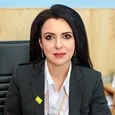
Kremlin propagandists normalize terrorism abroad under 'mirror response' logic
A recent Russian state TV broadcast laid bare something that should no longer be ignored: the Kremlin’s domestic propaganda machine now speaks the language of terrorism — not metaphorically, but literally.

“Ask your daughters.” These words, spoken by Friedrich Merz during a press conference in Berlin on Oct. 20, 2025, have already become a new political manifesto for modern Germany.

A strange thing has happened in Putin’s Russia: one of the regime’s most loyal prophets has become its accidental heretic.

When we talk about Russian aggression, the conversation often revolves around missiles, drones, the destruction of civilian infrastructure, and propaganda. Yet one of the most insidious fronts of this war lies far from the battlefield — in lecture halls, academic conferences, and research networks. A study by Japanese scholar Sanshiro Hosaka offers a rare window into how this intellectual front operates.

I’ve been living for a week now in apartment №40 of the Slovo (“Word”) House in Kharkiv — the apartment of Ukrainian journalist Petro Lisoviy. It’s hard to describe the sensation — as if time folds in on itself. You wake up not simply in a room but in a point of singularity, where the air still carries the voices of poets and dreamers who believed that The Word could save a nation.

So, Ukraine passed the stress test. Did it fix the machine? Law No. 12414 was rolled back in about a week; that shows resilience. It doesn’t show habit. Habit is publishing the rationale before orders land, writing clear rules where power meets oversight, and letting parliament work without being swatted back. If those basics don’t stick, July reads as an exception, not a standard.

Since Russia’s full-scale invasion in 2022, Ukraine fought a total war and kept the state running. Martial law centralized power and paused national elections. Even so, courts, parliament, independent media and anti-corruption bodies kept working under fire.










































